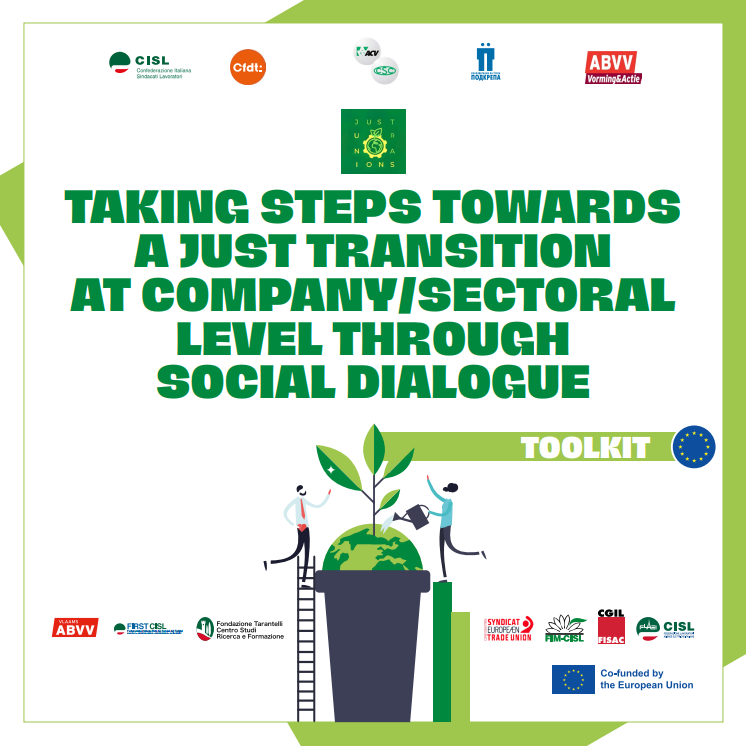|
ENVIRONMENTAL ASPECTS
|
|
ENERGY/RESOURCES (WATER)
|
|
Does the local government take initiatives to promote energy saving (promote or provide incentives for the renovation of buildings and heating and cooling systems, public awareness initiatives, etc.)?
|
|
|
How widely does the local government promote the installation of rainwater harvesting systems?
|
|
|
How many buildings (industrial, residential, private and public) meet the most modern energy-saving criteria (thermal insulation, photovoltaic or thermal solar panels, rainwater harvesting, etc.)?
|
|
|
Does the local government promote a responsible consumption of water aimed at avoiding waste?
|
|
|
How promptly does the local government (or the private waterworks company) intervene in the event of water leaks from the systems?
|
|
|
MATERIALS, WASTE
|
|
How well does the local government promote the separate waste collection?
|
|
|
What is the level of separate waste collection achieved in your area (compared to the national average)?
|
|
|
What is the rate of municipal waste recycling achieved in your area?
|
|
|
What is the extent of use of recycled products in the territory, compared to the national average (e.g. compost, biomass, etc.)?
|
|
|
How actively does the local government promote the circular economy through initiatives?
|
|
|
CONTROL OF THE ENVIRONMENTAL IMPACT
|
What is the pollution rate of the area (e.g. greenhouse gases, heavy metals, volatile organic compounds, nitrogen oxides NOX, sulphur oxides SOX)?
-- very high, ..., ++ very low
|
|
|
How committed is the local government to contributing to European targets on the reduction of greenhouse gas (GHG) emissions?
|
|
|
How often do authorities in your area monitor companies' implementation of environmental regulations?
|
|
|
How regularly are emission reduction targets and associated measures evaluated and readjusted by the local government?
|
|
|
How often does the local government propose initiatives to promote the ecological transition?
|
|
|
TRANSPORT AND MOBILITY
|
|
Is the local government committed to reducing transport emissions in line with the EU Green Deal target of 90 % by 2050?
|
|
|
Are efforts being made to organise the transport system more efficiently in order to reduce the use of private cars?
|
|
|
How committed is the local government to upgrading public transport with zero-emission vehicles?
|
|
|
How committed is the local government to promoting the use of eco-friendly private means of transport (cycle paths, bans on private cars in certain areas, bonuses for the use of eco-friendly vehicles, electric car charging facilities, etc.)?
|
|
|
How committed is the local government to making slow mobility (cycling, walking, wheeling, etc.) safe?
|
|
| |
|
SOCIAL ASPECTS
|
|
CHARACTERISTICS OF THE AREA
|
|
How much is the local economy linked to low-impact production systems?
|
|
|
How many companies in the area have started the transition in recent years (reconversion of production systems, reduction of emissions, use of renewable energy, circular economy, etc.)?
|
|
|
How many political-administrative actions have been implemented in recent years regarding environmental sustainability (renovation of buildings to save energy, installation of renewable energy plants, separate waste collection and recycling of waste on site, attention to local mobility policies, other actions to discourage the use of private cars, etc.)?
|
|
|
How active is the local population and/or civil society associations in environmental topics?
|
|
|
How many new transition-related economic activities are there in the area? (urban regeneration, tourism, installation of renewable energy plants, new water and land conservation activities, recovery and distribution to the rural population, reforestation, etc.).
|
|
|
SOCIAL DIALOGUE
|
|
How open is the local government to new demands and collaborative is it with the territorial social partners on just transition matters?
|
|
|
How often do the permanent dialogue commissions between local government and social partners in the area meet?
|
|
|
How positive/profitable is your organisation's relationship with other territorial organisations (associations, other trade unions, business organisations, etc.)?
|
|
|
Are tripartite initiatives at local level on transition issues (events, workshops, ...) frequent?
|
|
How much do transition related matters create conflict between the various stakeholders in the area (citizens, companies, associations, ...)?
-- very much, ..., ++ very little
|
|
|
HEALTH AND SAFETY IN THE AREA
|
How heavily does the impact of human activities on the environment generate situations that endanger the health and safety of the population?
-- very much, ..., ++ very little
|
|
How does pollution affect the health of the population in your area?
-- very much, ..., ++ very little
|
|
|
What is the quality of the water in your area?
|
|
How often have health protection measures challenged the transition?
-- very much, ..., ++ very little
|
|
|
How wide is the use of risk analysis as a method of identifying factors of danger to the safety and health of the population in your area?
|
|
|
JOB/TRAINING INITIATIVES
|
|
How committed is the local government to upskilling its population (training courses, use of public schools for adult ducation/training)?
|
|
|
How efficient and active are the employment services?
|
|
|
How committed is the local government to analysing the economic and employment dynamics related to the ecological transition?
|
|
|
How active is the administration in promoting local entrepreneurship?
|
|
|
How well does the government or territorial bodies such as banking foundations finance new businesses involved in the ecological transition?
|
|



